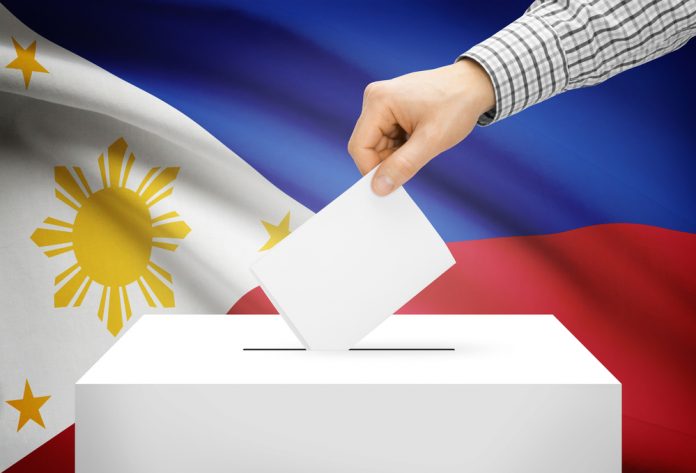As the Philippines prepare to vote in the presidential elections on 9 May 2022, the Asian Forum for Human Rights and Development (FORUM-ASIA) and the Philippine Alliance for Human Rights Advocates (PAHRA), urge all presidential candidates to publicly commit to protection and promotion of fundamental freedoms and human rights, create a safe and enabling environment for human rights defenders and civil society, and to ensure accountability for violations and abuses of human rights.
Since 1 July 2016, FORUM-ASIA has documented 221 cases of violations against human rights defenders in the Philippines for the past six years. Women human rights defenders have been disproportionately affected, with 71 cases recorded. Meanwhile, 86 cases of violence against community-based defenders were recorded. Judicial harassment, and arbitrary arrest and detention remain the most common violations, oftentimes coupled with the red-tagging of defenders, which heightens their risk of physical violence including killing. According to FORUM-ASIA, 66 defenders lost their lives in the Philippines, making it one of the deadliest countries in the world for those who stand up for human rights.
Meanwhile, since President Rodrigo Duterte assumed the seat of power in 2016[1], PAHRA member organizations have documented 386 cases of arbitrary arrests and detention, 67 cases of extrajudicial killings, 3 cases of enforced disappearance, and 143 cases of torture and ill-treatment of defenders.
Our organisations are particularly concerned about the Philippine Government’s deplorable human rights record under Duterte’s six-year tenure. Human rights defenders and staunch critics of Duterte have been intimidated using trumped-up charges filed by state actors and allies of the Government. For instance, Senator Leila de Lima faces judicial harassment and has been arbitrarily detained in Camp Crame, the police headquarters, since February 2017. She was acquitted from the first case four years later and is still facing two conspiracy charges to commit drug trading[2].
The Government has passed several repressive measures eroding human rights and removing necessary checks in power, such as the Anti-Terror Law and several COVID-19 restrictions. For instance, the Anti-Terror Law, which was signed by Duterte amidst the COVID-19 outbreak in 2020, contains vague provisions that effectively erode civil liberties and remove necessary checks in power[3]. The bill allows for a lengthened period of warrantless detention, creation of the Anti-Terrorism Council, and surveillance that go beyond stipulations in existing national security legislation[4]. The said law was largely upheld by the Philippine Supreme Court, except for a provision on dissent as terrorism and method of designating terrorists under the Anti-Terrorism Council[5].
Concerns have been raised by civil society groups that human rights and fundamental freedoms have regressed during the Duterte administration[6]. The six years of Duterte’s presidency will be remembered by Filipinos as a dismal period characterised by a bloody war on drugs, prevalent red-tagging and impunity. Duterte’s presidency also allowed rampant corruption and nepotism, and a culmination of violence towards human rights defenders. Duterte’s flagship ‘War on Drugs’ abruptly claimed the lives of over 12,000 Filipinos to date, mostly from the urban poor and vulnerable communities.[7] We deplore the country’s culture of impunity and a rapidly deteriorating civic space caused by Duterte’s penchant for violence and repression.
The Duterte regime has also attempted to threaten and silence media institutions, including Rappler and Alto Broadcasting System and Chronicle Broadcasting Network (ABS CBN), along with their journalists, over their reporting on the ‘war on drugs’ and human rights violations of the Duterte regime[8]
In this regard, we urge you, if elected as the next president of the Philippines, to ensure fundamental freedoms remain at the core of your platforms and mandates by implementing the following recommendations:
- Unconditionally release and drop all politically-motivated charges against Senator De Lima and all political prisoners;
- Refrain from leading and engaging in unabated political persecution, especially red-tagging, of human rights defenders and opposition leaders;
- Repeal the Anti-Terror Law and other repressive laws;
- Disband the NTF-ELCAC and rescind the EO 70 and conduct broad consultations on various sustainable avenues toward attaining just and lasting peace including the sincere return to the peace negotiating table with various entities seeking change in the Philippines;
- Support the passage of the House Bill No. 10576 or the Human Rights Defenders Protection Act, which was passed on its third and final reading earlier this year and encourage the progression of its counterpart version at the Philippine Senate;
- Cooperate with the International Criminal Court on its investigation into the alleged crimes against humanity and put into motion Transitional Justice processes including the formation of an independent Truth Commission to investigate the mass state killings, establish the root cause of the phenomenon and recommend state action for reparation and restitution of impacted families and communities;
- Institute a public information programme on the importance of Human Rights and the critical role of human rights defenders as sentinels of society in order to reverse the misperceptions intentionally sewn by the Duterte regime through disinformation and misinformation; and
- Ensure the Philippines’ compliance with international human rights standards for the protection and promotion of human rights and restoration of democratic institutions in the country.
[1] The cases documented by FORUM-ASIA, PAHRA, and other members do not reflect the actual number of human rights violations in the Philippines under the Duterte regime. The organisations acknowledge that there are human rights violations which were neither documented nor reported by the media.
[2] https://www.rappler.com/nation/leila-de-lima-acquitted-one-of-three-conspiracy-drug-trading-charges/
[3]https://www.voanews.com/a/philippine-human-rights-groups-dismayed-after-supreme-court-rules-parts-of-anti-terror-law-constitutional/6346624.html
[4] https://www.forum-asia.org/?p=31856
[5] https://sc.judiciary.gov.ph/24370/
[6] https://www.forum-asia.org/?p=31856
[7] https://www.hrw.org/tag/philippines-war-drugs
[8] https://www.forum-asia.org/?p=32276


